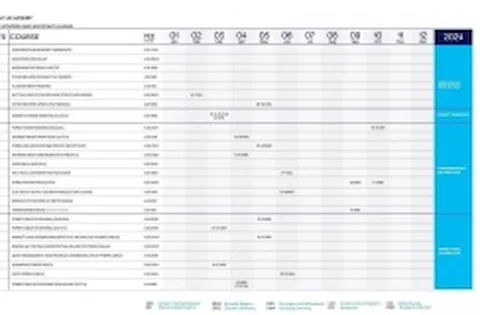Bottom-fixed offshore wind structures design training course
An introduction to the design of bottom-fixed offshore wind structures from the global experts
DNV is offering a multi-day introduction course on the design of bottom-fixed offshore wind structures covering the context of structures design within the offshore wind farm development, codes and standards, types of offshore structures, load calculation and analysis methods.
The next phase of the energy transition demands a rapid expansion of offshore wind. Bottom-fixed offshore wind will continue to play a critical role in the transition to a cleaner energy supply. Designing structures for offshore wind farm developments presents unique challenges compared to similar projects on land. In new and developing markets, developers and engineering contractors are looking to learn from established markets, while dealing with their own challenges – such as China’s deep soft soils or the need to build structures capable of handling typhoons or hurricanes. And, as the industry moves towards a zero-subsidy world, there is increased pressure on costs, even as increasing turbine sizes bring new structural challenges.
DNV has been active in the offshore wind market since 1997. Our highly-experienced team has been providing offshore structures support to customers since 2006 and are involved in over 6 GW of offshore wind projects.
Typical course topics (example)
- Overall wind farm design
- Components of offshore wind farm
- Planning and consenting
- Type of offshore substructure and scope of application
- Codes, standards, practices
- Loads calculation and sources
- Substructure design methods and calculation
- Ground conditions, interpretation and soil-structure interaction
- Transportation and Installation analysis
- Case studies
For whom?
This course is aimed at structural engineers entering the offshore wind industry who want to adapt their knowledge to the particular challenges of designing for offshore wind.
Your benefits
On completion, attendees should get a good understanding of the drivers of offshore wind structures design, the techniques for load calculation and the methods of analysis.
This training course is available on request. Content, location and duration of the course can be adapted to your specific wishes.


